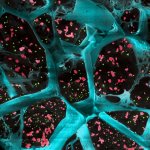
News • Oncology
Biodegradable hydrogel boosts immune system’s attack on cancers
A new biodegradable gel improves the immune system’s ability to keep cancer at bay after tumors are surgically removed.

A new biodegradable gel improves the immune system’s ability to keep cancer at bay after tumors are surgically removed.

Hygienic, single-use components are widely used in endoscopy to ensure patient safety but are considered wasteful. Reprocessing is a more sustainable alternative but requires special equipment and training to avoid equipment contamination. This creates an area of conflict for physicians, hospital staff, but also for manufacturers. We spoke with two experts at Pentax Medical about challenges in…
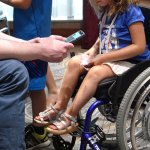
The diagnosis is rare, but devastating – children with congenital muscle disorders often never learn to walk. Now, researchers from Basel present a possible therapeutic approach for the first time.
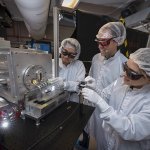
A new research venture pairs cutting-edge particle accelerator science and radiation therapy.
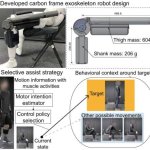
Scientists have utilized the integration of lightweight material engineering and artificial intelligence to create an exoskeleton robot that can aid those with mobility impairments.
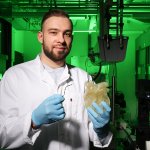
Engineers developed a variable stiffness catheter made of nontoxic threads that can transition between soft and rigid states during surgery.
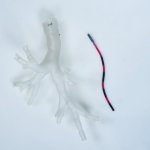
A proof of concept for a robot that can reach some of the smallest bronchial tubes in the lungs to take tissue samples or deliver cancer therapy.
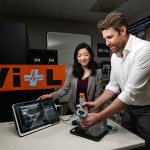
The AI-Guided Ultrasound Intervention Device is a lifesaving technology that helps a range of users deliver complex medical interventions at the point of injury.

A new type of AI companion is being designed to aid memory recollection, boost confidence and combat depression in people living with Alzheimer’s disease and other types of dementia.
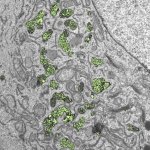
Researchers have succeeded in using metal oxide nanoparticles as "radiosensitizers" – and in producing them on an industrial scale.

Nowhere does the birthplace of a preterm baby determine life or death more than in Africa. A concerted effort is made to reduce the continent’s dramatically high neonatal mortality rates.
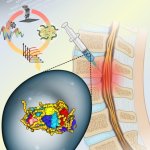
By employing artificial intelligence (AI) and robotics to formulate therapeutic proteins, researchers promoted tissue regeneration.
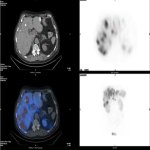
Molecular radiotherapy shows great potential in becoming a more mainstream treatment for cancer, but the field is being hampered by a limited radionuclide supply.
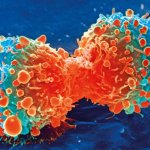
New research from the University of East Anglia (UEA) and Quadram Institute reveals how our immune system can be triggered to attack cancer cells.
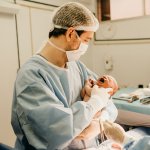
Experts are leading a new initiative to help save the lives of thousands of women giving birth by Caesarean section in developing nations (LMIC).
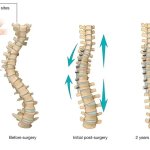
Fusion surgery has been the long-standing treatment for people with scoliosis. Now, other options have become available.
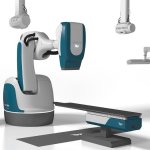
GenesisCare announced the establishment of the Accuray CyberKnife S7 robotic accelerator that delivers radiosurgery treatment guided by AI and synchronized with real-time imaging.

A new kind of bone implant reduces the chance of infection, and therefore significantly decreases implant failure rates.
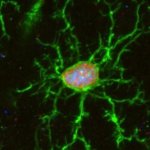
Pre-transplant chemotherapy facilitates the replacement of the brain's innate immune cells, by other immune cells derived from the transplanted stem cells.
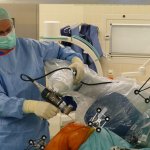
Professor Dr Henning Windhagen is a great fan of semi-automatic systems that help with implants but leave the surgeon in the driver’s seat.

A miniature colonoscopy robot on tank-like treads, which carries a camera and uses other small surgical tools, could have clear benefits for both patients and endoscopists.
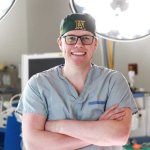
A new risk calculator could reduce the number of unnecessary and invasive biopsies for prostate cancer.
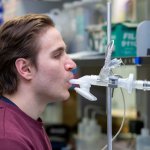
Scientists have confirmed that an inhaled form of COVID vaccine can provide broad, long-lasting protection against the original strain of SARS-CoV-2 and variants of concern.

Children's National Hospital successfully performed the first-ever high-intensity focused ultrasound surgery on a pediatric patient with neurofibromatosis. This is the youngest patient to undergo HIFU treatment in the world.
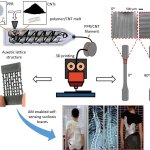
Researchers have developed a new type of lightweight 3D-printed back brace capable of sensing how effectively it fits patients. Its developers say it could lead to improved treatment for scoliosis.